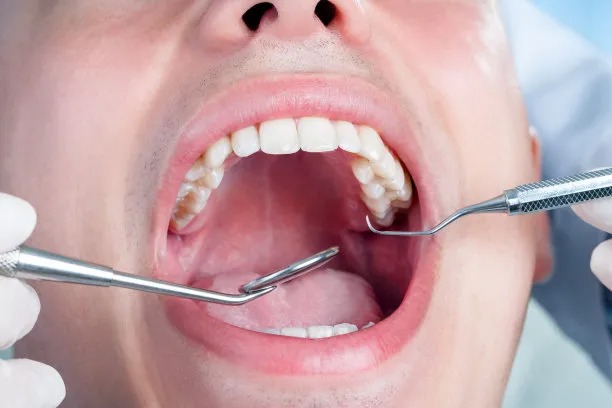Summary: Undergoing a dental filling procedure is an essential step toward maintaining optimal oral health, but proper precautions must be taken beforehand. This article outlines four critical areas to focus on: understanding dental filling types, discussing your medical history with your dentist, preparing financially for the procedure, and knowing what to expect during recovery. By thoroughly preparing for your dental treatment, you can enhance the effectiveness of the procedure, reduce anxiety, and ensure a smoother recovery process. Lets delve into these essential precautions to help you be fully prepared for your filling appointment.
1. Understanding Different Types of Dental Fillings

Before undergoing a dental filling procedure, its vital to understand the different types of fillings available. The most common types include composite resin, amalgam, glass ionomer, and porcelain. Each material has its pros and cons regarding durability, appearance, and cost, and these factors can influence your choice.
Composite resin fillings are popular for their aesthetic appeal, especially for front teeth. However, they may require more maintenance over time compared to metals. In contrast, amalgam fillings are durable and less expensive, making them suitable for back teeth, where wear and tear are more common.
Additionally, discussing options with your dentist can provide clarity. They will assess your specific dental needs and recommend the most appropriate material based on factors such as the extent of decay and location of the filling.
2. Discussing Medical History with Your Dentist
Your medical history plays a crucial role in determining the dental filling procedures safety and effectiveness. Be transparent about any allergies, especially to metals or medications, as this information can significantly impact the type of filling you can safely receive.
If you have any underlying health conditions, such as heart disease or diabetes, its essential to inform your dentist. These conditions can affect your healing process post-procedure and may necessitate specific precautions.
Moreover, if you are currently taking medication, including over-the-counter supplements, sharing this information with your dentist is crucial. Certain medications can have implications on anesthesia or your bodys ability to heal properly.
3. Preparing Financially for the Procedure
Financial preparation is another essential precaution to take before a dental filling procedure. It’s important to inquire about the cost of the filling, including any additional procedures that may be necessary to complete your dental care.
Check with your dental insurance provider to understand what is covered regarding filling procedures. Coverage can vary widely based on the material used and the specifics of the treatment.
Creating a budget or payment plan can help alleviate financial stress. If you are paying out of pocket, be sure to ask your dentist about possible financing options or any available discounts that may ease your financial burden.
4. Knowing What to Expect During Recovery
Understanding the recovery process is a vital precaution that can set your expectations for your dental filling experience. Right after the procedure, you may experience a numb sensation in your mouth if local anesthesia was used, which can last for several hours.
It’s common to have some pain or sensitivity in the treated area for a few days following the filling. Your dentist may recommend over-the-counter pain relievers to help manage any discomfort.
Additionally, it’s advisable to modify your diet temporarily after the filling, especially avoiding very hot or cold foods until the sensitivity subsides. Following your dentists post-procedure guidelines will ensure a smoother recovery and maintain the integrity of the filling.
Summary:
Preparing for a dental filling involves understanding the types of fillings available, discussing your medical history with your dentist, ensuring financial preparedness, and knowing what recovery entails. Each of these precautions contributes significantly to attaining optimal oral health and ensuring a successful dental procedure.
This article is compiled by Vickong Dental and the content is for reference only.
Vickong Dental
Vickong Dental is a large medical group established in Hong Kong in 2008 by professors from well-known medical universities in Guangdong and Hong Kong, as well as medical doctors from key national '985' universities (including Master's supervisors and senior professors). The chain of branches brings together expert dentists with PhDs and Master's degrees from Hong Kong and Mainland China, committed to providing high-quality dental treatment.
"Vickong Dental Practices the University Motto of 'Healing and Serving Society,' with a Stable Operation for Sixteen Years. It Has Been honored with Hong Kong Enterprise Leaders's Choice,' and is a Global Trusted Implant Center for the Nobel Implant System. Recommended by Hong Kong Metro Broadcast and Guangdong Television, it Serves Customers from Over Thirty Countries and Regions, Gaining the Trust and Favor of Citizens from the Guangdong-Hong Kong-Macau Greater Bay Area and Surrounding Cities.

Thousands of customers' unanimous praise
The most recognized and highly recommended dental service by customers in the Guangdong-Hong Kong-Macau Greater Bay Area
We Ensure You Receive Detailed Care and Attention Here
Hong Kong standards, Shenzhen prices, Your Trusted English-speaking dentists

Vickong Dental Medical-Grade Instrument Disinfection Process
Vickong Dental Medical-Grade Instrument Disinfection Process

Vickong Dental Chain: A Warm and Comfortable Environment for Treatment






Appointment Hours

Q&A
Why choose Vickong Dental?
Vickong Dental practices the university motto 「Medicine to Benefit Society」, with each branch bringing together highly qualified dentists with doctoral and master’s degrees from Hong Kong and the Mainland, and has maintained seventeen years of steady operation。Recipient of 「2024 Hong Kong Enterprise Leaders Brand」, 「2025 Hong Kong Enterprise Leaders Brand」, a Nobel Biocare Global Trusted Implant Center, and a brand recommended by Metro Radio Hong Kong and Guangdong TV。
To date, we have served customers from more than thirty countries and regions,earning exceptionally high word-of-mouth recognition and trusted recommendations from residents across the Guangdong-Hong Kong-Macao Greater Bay Area and surrounding cities
We have eight major branches in Zhuhai、Shenzhen,and a consultation and service assurance center in Hong Kong,so you can book a free consultation at any time for any questions,which is very reassuring.
If I do not accept the quotation after the CT scan, will I be charged??
No! As long as the actual treatment has not started, you will not be charged any fees.
Will there be any additional charges during the treatment process?
No, there won’t be any additional charges. Before treatment begins, we will clearly explain the treatment plan and its corresponding fees. Only after the patient agrees and signs the consent form will we proceed with the dental service.
Can I pay in Hong Kong dollars?
Yes. Vickong Dental accepts payment in Hong Kong dollars. The amount will be converted based on the exchange rate of the day, and the applicable rate will be clearly communicated to you in advance.
Can I reschedule my appointment at any time?
Yes. Please contact us via **WeChat** or **WhatsApp** as early as possible, providing your original appointment time and details, along with your preferred new date and time slot for rescheduling.













